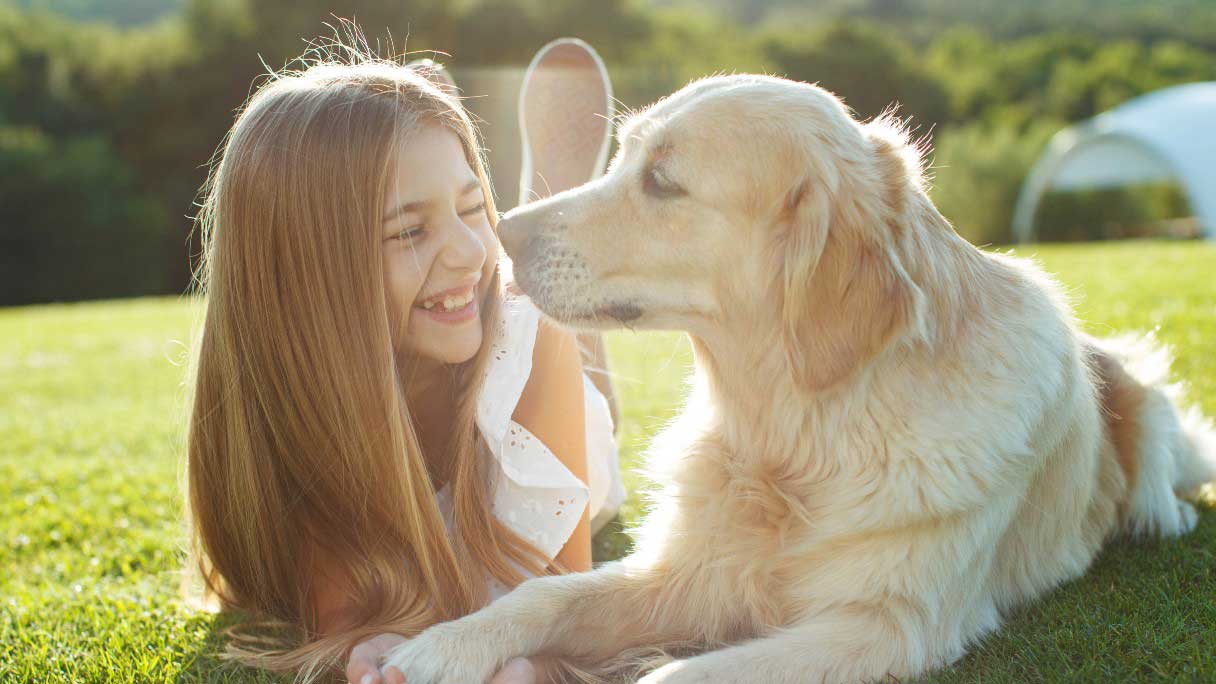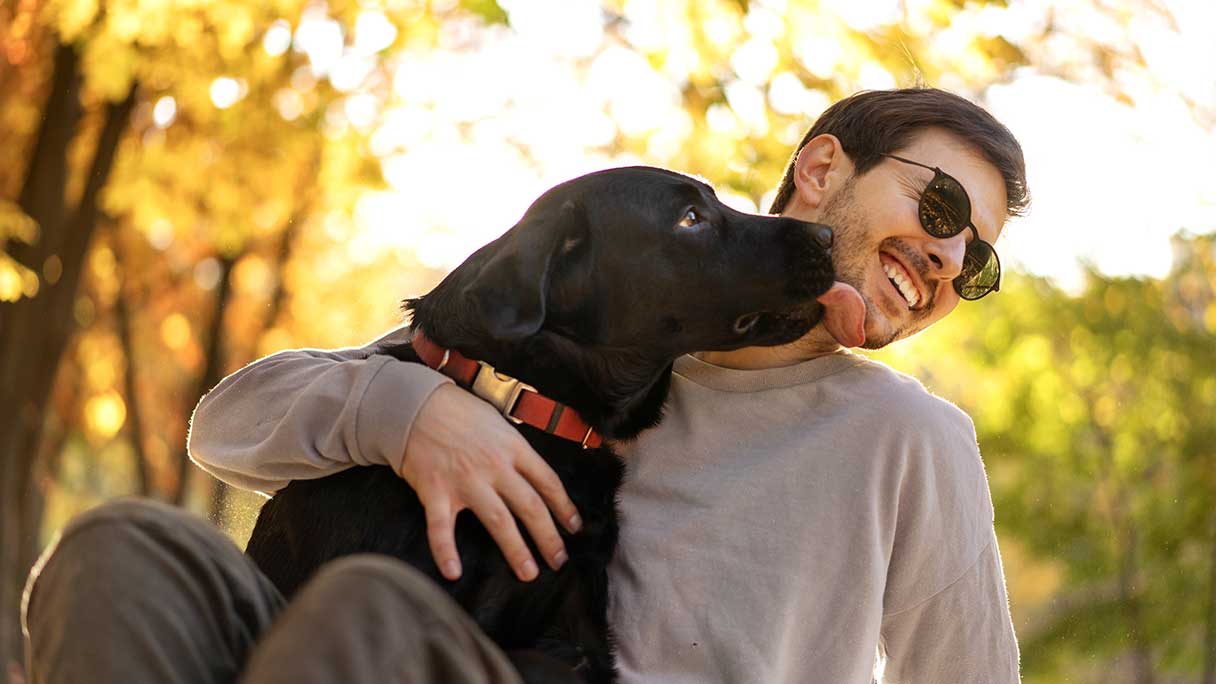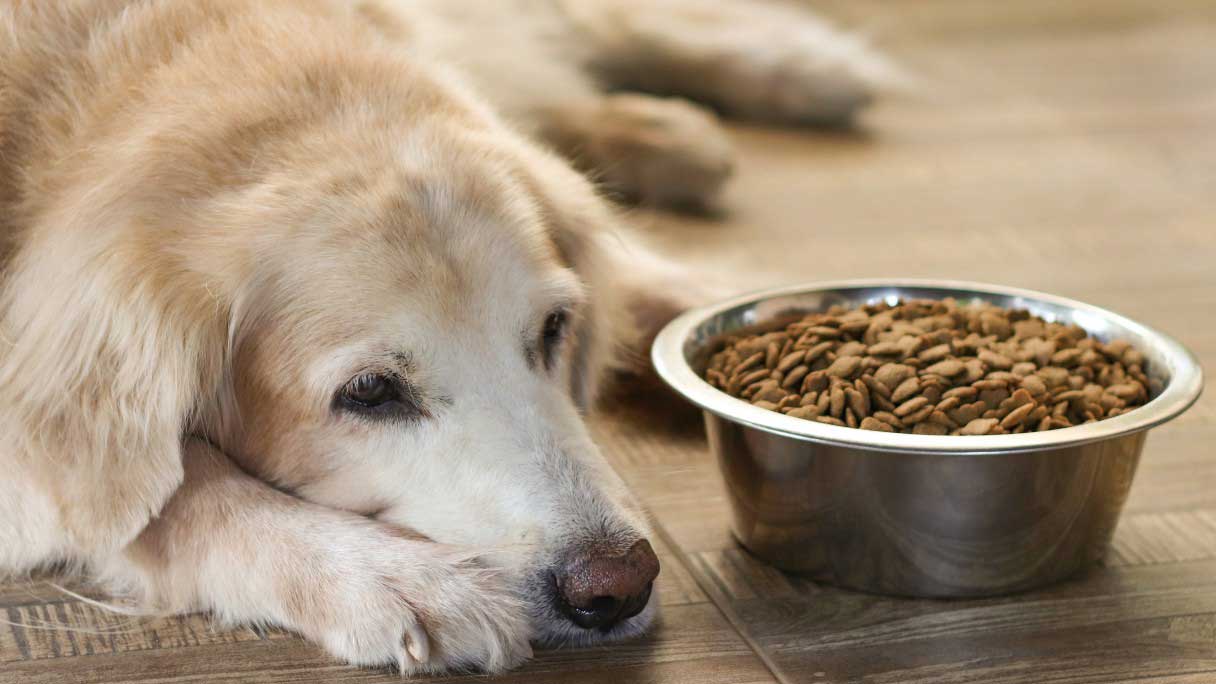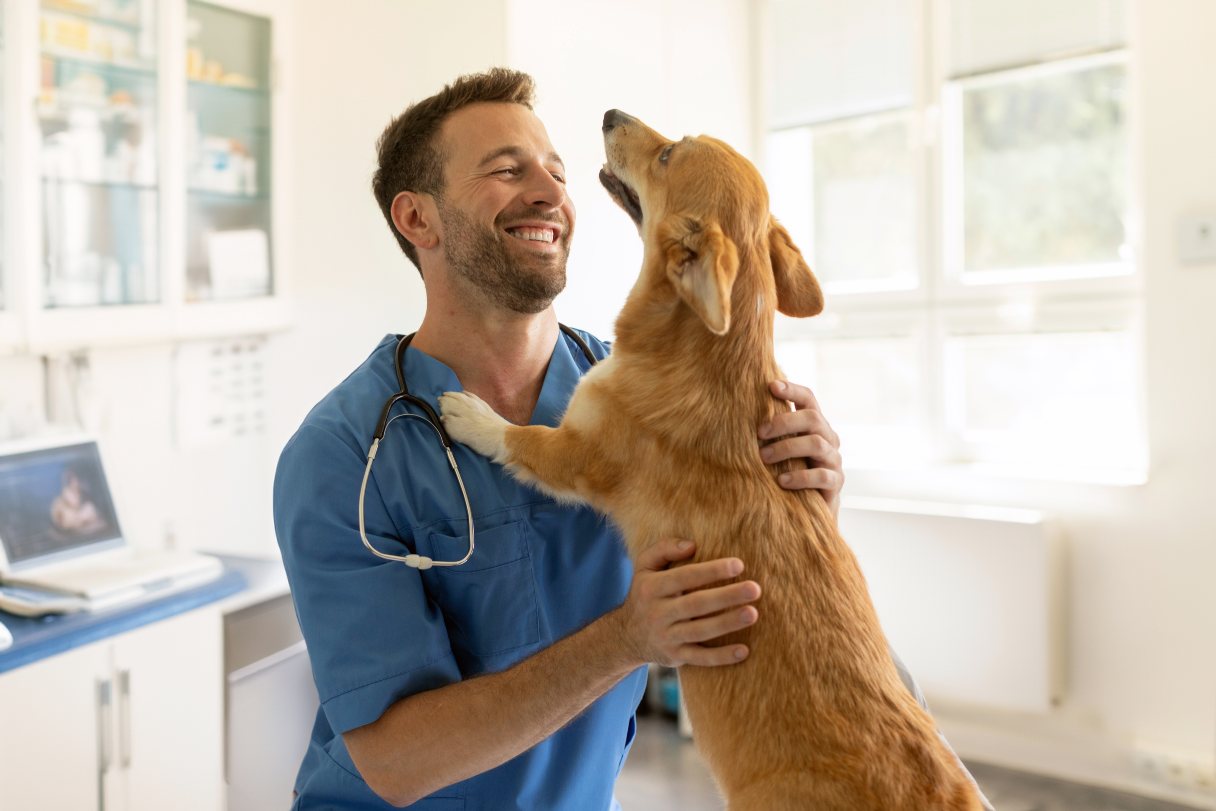Did you know that dogs can get hernias? It’s actually a common condition, but it’s not always obvious when your dog has one. Hernias can be a serious and potentially life-threatening condition if left untreated, so it’s important to know how to spot one.
Here’s what you need to know about hernias in dogs, including the different types of hernias, their signs and symptoms and how they’re treated.
What Is a Dog Hernia?
A hernia occurs when body tissue, typically an internal organ or fatty tissue in the case of dogs, pushes through a hole in the surrounding muscle or connective tissue, ending up in an area where it doesn’t belong. Some puppies are born with hernias, and dogs can also develop secondary hernias caused by injury or an underlying medical condition. Hernias can be life-threatening, but not always. Nevertheless, they should be examined and treated by a veterinarian.1
5 Types of Dog Hernias
There are five classifications of dog hernias, depending on where they’re located on the body. These include:1
-
Diaphragmatic hernia. The diaphragm is a sheet of muscle tissue that walls off the heart and lungs from the abdomen. If the diaphragm tears or develops a hole, the stomach or other abdominal organs can press through it into the chest cavity.
-
Hiatal hernia. This type of dog hernia occurs when an abdominal organ pushes through the natural opening between the esophagus and the stomach.
-
Inguinal hernia. The inguinal canal is a small opening located in the groin muscles. An inguinal hernia occurs when abdominal organs squeeze through this opening.
-
Perineal hernia. The pelvic diaphragm is another muscle wall that separates the lower abdomen from the rectum. If this develops a tear, organs such as the bladder or prostate can push through it, causing the area around the anus to bulge or swell.
-
Umbilical hernia. This occurs when abdominal organs try to squeeze out through the belly button, creating a bulge on the tummy. This is the most common type of dog hernia and usually occurs in puppies and young dogs.
What Causes a Hernia in Dogs?
Hernias are either congenital — meaning puppies are born with them — or they can develop later as secondary hernias.1
Congenital hernias are thought to be genetic. The most common type of hernias, umbilical hernias, are always congenital. In utero, some of the mother’s blood vessels may push into the developing puppy’s umbilical ring, a natural opening in the pup’s abdominal muscles. If this opening fails to close after birth, some of the puppy’s organs can pass through it.1
Secondary hernias are caused by either injury or a medical condition. Major trauma, such as being hit by a car, can cause internal tears that lead to hernias. In addition, health conditions that cause severe straining, such as constipation or labor, can stress tissues and force them through various internal openings, leading to a hernia.1
Signs and Symptoms of Dog Hernias
Symptoms of a hernia in dogs tend to vary depending on the type of hernia experienced by the dog or puppy. Here are some signs of dog hernia to watch for, broken down by the type of hernia:1
| Hernia type | Symptoms |
|---|---|
| Diaphragmatic hernia | Shallow or rapid breathing |
| Hiatal hernia | Vomiting, bloody vomiting, drooling and difficulty breathing |
| Inguinal hernia | Difficulty urinating |
| Perineal hernia | Straining to poop, as well as swelling around the anus |
| Umbilical hernia |
A bump or bulge on the tummy (If an umbilical hernia is caused by an abdominal organ pushing through, it may lead to pain, lethargy, appetite loss, nausea or vomiting.) |
When Should I Visit the Vet About a Dog Hernia?
Hernias can be quite serious, and the symptoms of a hernia can also indicate other illnesses or health conditions that should be addressed right away. Not all hernias will produce a visible bump or bulge, but if you notice any strange lumps or bumps on your dog or puppy — or if your dog exhibits other symptoms that could point to a hernia — you should have them checked out by your vet.1
How Are Dog Hernias Diagnosed?
If you bring your dog to the vet for a suspected hernia, they’ll start with a physical examination of your pup and gently palpate the area where the hernia is likely located. If the hernia is internal or not immediately visible, the vet might also perform imaging tests — such as an X-ray, ultrasound or a CT scan — to see inside your dog’s body and accurately determine the type of hernia.2
How Are Dog Hernias Treated?
How your veterinarian will treat the hernia depends on the type and severity. They generally recommend surgery to repair a hernia, although some small umbilical hernias can be corrected manually and then observed and managed until the puppy is old enough for surgery. Hiatal hernias can sometimes be managed with medication and other therapies, as long as symptoms are mild. Diaphragmatic hernias, however, are potentially life-threatening and usually require immediate surgical repair.1
Dog Hernia Surgery: What to Expect
If your dog needs hernia surgery, you’ll need to refrain from giving them any food after 10 p.m. the night before. Your vet might recommend giving an antacid to your pet in the morning to prevent heartburn following the surgery.2
After leaving your dog at the vet, the surgical team will manage their pain and stress before, during and after surgery using a combination of pain medications, sedatives and anesthesia. Following the surgery, your dog will be closely monitored as the anesthesia wears off. If all goes well, you’ll be able to pick them up and take them home once they’re fully awake.2
Full recovery from hernia surgery can take up to eight weeks, but most of your dog’s swelling should subside after the first two weeks. Some dogs might develop a lump at the surgical site that resembles another hernia, but this is normal and typically disappears after three or four weeks.2
Hernia surgery has a 90% success rate. Hernias can return, but ensuring your pet gets plenty of rest and restricting their activity during their recovery period will reduce the chances of a recurrence. Although infections are rare, monitor your pup for any signs of infection, and contact your vet with any questions or concerns.2
How Much Does Dog Hernia Surgery Cost?
The cost of treating your dog’s hernia will ultimately depend on a number of different factors, including where you live, the size and breed of your dog, individual vet fees and whether you have surgery done at your vet’s office or at a surgical center. Here’s a general breakdown of the average costs* involved in diagnosing and treating a dog hernia:3
| Hernia treatment | Average cost |
|---|---|
| Initial examination and testing | $468 |
| Diaphragmatic hernia surgery | $2,653 |
| Hiatal hernia surgery | $2,349 |
| Inguinal hernia surgery | $1,031 |
| Perineal hernia surgery | $2,421 |
| Umbilical hernia surgery | $875 |
How to Prevent Hernias in Dogs
You can’t do anything to prevent congenital hernias from occurring in the womb, but there are some steps you can take to reduce your dog’s chances of getting a secondary hernia due to trauma:1
-
When they’re outside, keep your dog on a leash or in a securely fenced area and make sure they are always supervised.
-
Use pet gates to block stairs and other potential indoor hazards.
-
Separate dogs and other pets that are prone to fighting.
-
Don’t allow small children to handle tiny dogs without close supervision.
Hernias in dogs are a common occurrence. While they can be serious, they’re treatable. Paying attention and noticing signs and symptoms of a hernia in your dog will enable you to act quickly to get them proper treatment and help restore them to a healthy, happy life.
Frequently Asked Questions About Dog Hernias
Do you still have questions about hernias in dogs? Here are answers to some commonly asked questions.
Financing Dog Hernia Surgery With the CareCredit Credit Card
Your dog is your best friend, and you want to make sure they get the very best. That's why the CareCredit credit card is here to help you manage the costs of diagnostics and treatment for conditions like hernias.** Use our Acceptance Locator to find a veterinarian near you that accepts CareCredit.
CareCredit is there for you and your pet every step of the way. Continue your wellness journey by downloading the CareCredit Mobile App to manage your account, find a provider on the go and easily access the Well U blog for more great articles, podcasts and videos.
In addition to pet care, you can also use your CareCredit credit card for dentistry, cosmetic, vision, hearing, health systems, dermatology, pharmacy purchases, spa treatments and so much more within the CareCredit network. How will you invest in your health and wellness next?
Author Bio
Jean Marie Bauhaus is a freelance writer and novelist who has been writing pet content since 2013. Her work has appeared on Forbes.com, Hill's Pet, Chewy, AKC.org and more.







